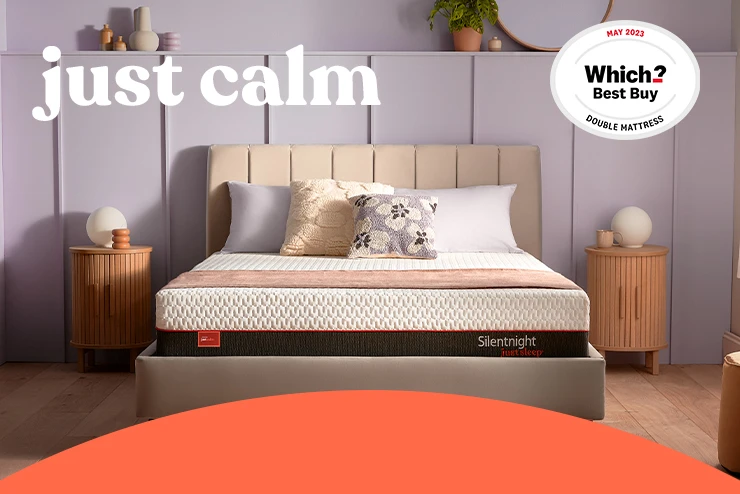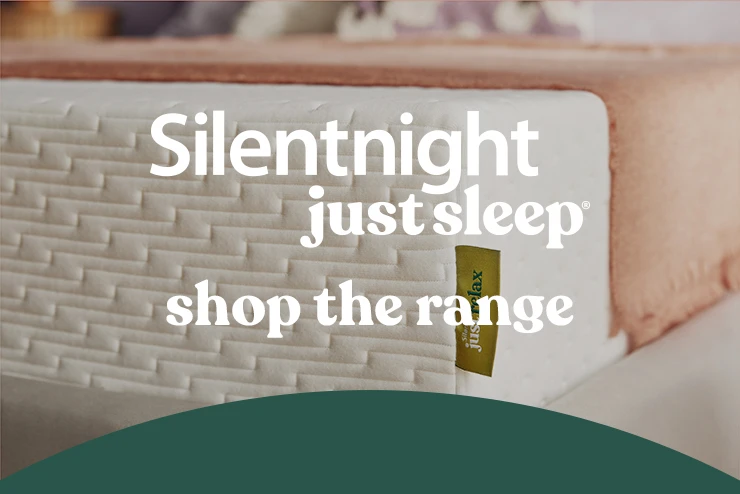Download a new browser







try it out for a year

choose from 7 rolled mattresses

delivered in 48 hours
shop by size
shop by range
UK's most trusted sleep brand

Handmade in the UK

multi award-winning mattresses
shop by type
buying guides
UK's most trusted sleep brand

multi award-winning mattresses

rigorous safety testing
shop by type
sleep advice
UK's most trusted sleep brand

FREE UK delivery over £49

rigorous safety testing







try it out for a year

choose from 7 rolled mattresses

delivered in 48 hours
shop by size
shop by range
UK's most trusted sleep brand

Handmade in the UK

multi award-winning mattresses
shop by type
buying guides
UK's most trusted sleep brand

multi award-winning mattresses

rigorous safety testing
shop by type
sleep advice
UK's most trusted sleep brand

FREE UK delivery over £49

rigorous safety testing
 free delivery over £49
free delivery over £49
 Klarna available
Klarna available
General
5 min read
written by Shannon M
updated 22.05.2025

Sleepmaxxing is a series of hacks designed to help you get longer and deeper sleep.
Ingesting too much magnesium in your diet can lead to a bad stomach, making it unsuitable for those with kidney issues.
It’s scientifically proven that slow, relaxing sounds and music can help us unwind, destress and naturally fall into a deep sleep.
Quality sleep can increase your energy levels, help you maintain a healthy weight, and reduce stress and anxiety.
Sleepmaxxing, the latest sleep phenomenon that’s taken over TikTok, is all about hacks that’ll ensure you get a deeper and longer kip. From consuming magnesium in ‘sleepy girl cocktails’ to eating kiwis, these are viral trends that aren’t always backed by science. But could they really work?
The concept of sleep optimisation has been a growing interest for many years, especially as the importance of getting quality sleep is no question. By prioritising your sleep health, you’re also prioritising your mental and physical well-being - making it a no-brainer.
With that in mind, let's delve into the unusual world of sleepmaxxing hacks and better understand their effectiveness.
Sleepmaxxing is a wellness trend that’s directed at Gen-Z and millennials, designed to offer simple but effective tips for getting deeper and longer sleep. Shortly launched after ‘looksmaxxing’, the previous trend for improving your physical appearance, sleepmaxxing is all about creating unique bedtime routines, investing in essential sleep accessories and tracking your sleep metrics.
These might sound like good ideas but sleep experts across the country are concerned about the counter-productiveness of obsessing over getting good sleep, calling it a fad. Unlike sleep practises such as being physically active during the day or implementing a relaxing bedtime routine, encouraging that natural wake-to-sleep transition, these trends could do more damage than good.
We’ve detailed some of the most common sleepmaxxing trends below, giving you a little context as to why they’re recommended but what negative impact they could have instead.
The ‘sleepy girl’ mocktail has been made by thousands of TikTok’ers across the globe, combining cherry juice, lemonade and magnesium powder to overcome the struggle of hitting the hay.
The theory: By ingesting magnesium before bed, you’ll improve your sleep quality by relaxing the mind and body and potentially reducing stress levels.
The reality: The evidence surrounding magnesium aiding sleep is lacking, with many only feeling the effects if they have a magnesium deficiency beforehand. In fact, too much magnesium in your diet can actually lead to a bad stomach, making it unsuitable for those with kidney issues.
One that has been growing in popularity for quite some time now is taping your mouth shut with specialised lip tape, plasters or you name it.
The theory: By placing tape over your mouth, you’ll automatically rely on your nasal passages to breathe throughout the night, which helps avoid snoring or getting a dry mouth. It could also humidify the air you breathe.
The reality: By forcing yourself to breathe through your nose, you could risk skin irritation, anxiety from confusion when you wake up and irregularity in your breathing. For instance, if your nose becomes blocked during the night.
We often go on about what we should and shouldn’t eat before bed to enhance our sleep, but one that’s sparked some interest in these sleepmaxxing trends is eating two kiwis before bed.
The theory: Having two kiwis before your slumber will improve the quality of sleep you get because they increase serotonin levels, a hormone that regulates our sleep.
The reality: There’s unfortunately not enough evidence to back up this claim.
Ever heard of sleep music? These playlists consist of songs that have been highly edited to relax and signal to the body that it’s time to sleep.
The theory: By using instrumental music with a slow tempo of between 60-80 beats per minute, and incorporating peaceful sound effects, you’ll drift off into dreamland in no time.
The reality: This is a hack we can support. It’s scientifically proven that slow, relaxing sounds and music can help us unwind, destress and naturally fall into a deep sleep. If you need some inspiration of what to listen to, check out our article on the best sleep sounds for a blissful night’s sleep.
Tracking your sleep refers to wearing smart watches, rings and any other device that’s able to log your sleep.
The theory: They’re intuitive devices that can tell you how much deep sleep you experienced, if you had any interruptions and a plethora of more data.
The reality: While constant improvements are being made to this technology, it’s important to remember they’re not diagnostic tools and accuracy does vary, so at this stage it might be best to take their results with a pinch of salt.
While we’ve outlined some of the main sleepmaxxing trends above, let’s not forget the underlying message of sleep optimisation. While sleepmaxxing might not be doctor recommended, it’s important that you take the time to improve your sleep so that you can reap the many benefits, including:
Higher energy levels
Maintaining a healthy weight
Lower stress & anxiety levels
Lower risk of serious health issues
Improved memory, attention levels and cognitive function
But going back to forming an obsession over getting better sleep, this isn’t what we call wise. With obsessions comes intrusive thoughts that could not only cause anxiety and stress but can also leave you feeling deflated and angry that you weren’t able to achieve something.
That’s why making gradual improvements in your lifestyle is the key to improved sleep. For tips, check out our guide on how to get better sleep.
Whether sleepmaxxing is short or long-lived we don’t know, but starting conversations around quality sleep is beneficial for so many reasons. Finding that balanced approach to such theories is wise – and finding what works for you is wiser.
If you’d like more advice on how to improve your sleep from our experts, check out our blog section on healthy sleep.
Add another item to compare
Add another item to compare
Add another item to compare
Add another item to compare